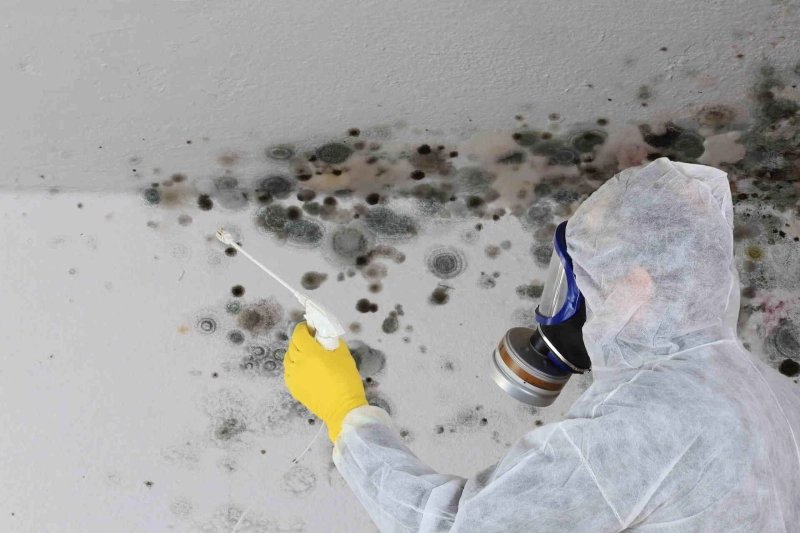Introduction
In Cleveland, GA, mold infestations can be a serious issue for homeowners. Mold not only damages property but also poses health risks to occupants. In this guide, we\'ll explore the best mold remediation services available in Cleveland, GA, to help you tackle this problem effectively.
Define Mold Remediation
Mold remediation refers to the process of identifying, containing, and removing mold from an indoor environment. It involves addressing the root cause of mold growth and restoring the affected area to a safe and healthy condition.
Importance of Mold Remediation
Mold remediation is crucial for maintaining a healthy indoor environment. Mold exposure can lead to various health problems, including respiratory issues, allergies, and skin irritation. Additionally, mold can cause structural damage to buildings if left unchecked.
Types and Categories of Mold
Classification of Mold
Mold can be classified into different types based on its appearance and properties. Common types of mold found in homes include:
- Stachybotrys Chartarum: Also known as black mold, this type of mold thrives in damp environments and can produce toxins harmful to humans.
- Aspergillus: This mold genus is commonly found indoors and outdoors and can cause respiratory infections in susceptible individuals.
- Penicillium: Penicillium mold can cause allergic reactions and respiratory issues and is often found in water-damaged buildings.
Signs of Mold Infestation
Recognizing the signs of mold infestation is essential for prompt remediation. Common signs include:
- Visible mold growth on walls, ceilings, or floors
- Musty odors in indoor spaces
- Water stains or discoloration on surfaces
- Allergic reactions such as sneezing, coughing, or skin rashes
Symptoms and Signs
Common Symptoms of Mold Exposure
Exposure to mold can trigger various symptoms, including:
- Nasal congestion and sinus congestion
- Coughing, wheezing, or shortness of breath
- Skin irritation or rash
- Eye irritation, such as redness or watering
Uncommon Symptoms
In severe cases, mold exposure can lead to more serious health issues, such as:
- Respiratory infections
- Neurological symptoms, including headaches and memory loss
- Chronic fatigue and weakness
Causes and Risk Factors
Biological Factors
Mold requires moisture, organic material, and oxygen to grow. Common biological factors contributing to mold growth include:
- Water leaks or flooding
- High humidity levels
- Poor ventilation
Environmental Factors
Environmental conditions play a significant role in mold growth. Factors such as climate, temperature, and indoor air quality can influence mold development.
Lifestyle Factors
Lifestyle choices can also impact mold growth in homes. Practices such as inadequate cleaning, improper food storage, and smoking indoors can create favorable conditions for mold.
Diagnosis and Tests
Mold Inspection
A professional mold inspection involves a thorough assessment of the property to identify areas of mold growth and moisture intrusion. During the inspection, samples may be collected for laboratory analysis to determine the type and extent of mold present.
Testing Methods
Various testing methods can be employed to assess mold contamination, including:
- Air sampling to measure mold spore levels in the indoor environment
- Surface sampling to collect mold samples from affected surfaces
- Moisture testing to identify areas of elevated moisture levels conducive to mold growth
Treatment Options
Mold Removal Techniques
Effective mold remediation involves the following steps:
- Containment: Isolating the affected area to prevent mold spores from spreading to other parts of the property.
- Removal: Physically removing mold growth from surfaces using specialized equipment and cleaning agents.
- Sanitization: Treating surfaces with antimicrobial solutions to kill remaining mold spores and prevent regrowth.
Restoration
Once mold has been removed, restoration efforts focus on repairing any damage caused by mold and addressing the underlying moisture issues to prevent future mold growth.
Preventive Measures
Moisture Control
Controlling moisture is key to preventing mold growth. Tips for moisture control include:
- Repairing water leaks promptly
- Using dehumidifiers to maintain indoor humidity levels below 60%
- Improving ventilation in bathrooms, kitchens, and other moisture-prone areas
Regular Maintenance
Regular maintenance practices can help prevent mold growth and identify potential issues early. These include:
- Inspecting plumbing and HVAC systems regularly for leaks
- Cleaning and drying water-damaged materials promptly
- Monitoring indoor humidity levels with a hygrometer
Personal Stories or Case Studies
John\'s Mold Remediation Experience
John, a homeowner in Cleveland, GA, discovered mold growth in his basement after a heavy rainfall. Concerned about the health risks posed by mold, John contacted a local mold remediation company for assistance.
The remediation team conducted a thorough inspection of John\'s property and identified the source of the mold growth—a cracked foundation allowing water seepage into the basement. They implemented a comprehensive remediation plan, which included containment, removal, and sanitization procedures.
After the remediation process was complete, John noticed a significant improvement in the air quality and no longer experienced allergy symptoms. He was grateful for the professional and efficient service provided by the mold remediation company.
Expert Insights
Dr. Smith\'s Advice on Mold Remediation
According to Dr. Smith, a leading expert in indoor air quality, mold remediation should be approached systematically to ensure effective results. He emphasizes the importance of addressing underlying moisture issues to prevent mold regrowth and recommends hiring certified professionals for thorough remediation.
Conclusion
Mold infestations can pose significant health and property risks if left untreated. By understanding the causes, symptoms, and treatment options for mold, homeowners in Cleveland, GA, can take proactive steps to protect their homes and families. Remember to prioritize moisture control, regular maintenance, and professional remediation services to keep your home mold-free.


